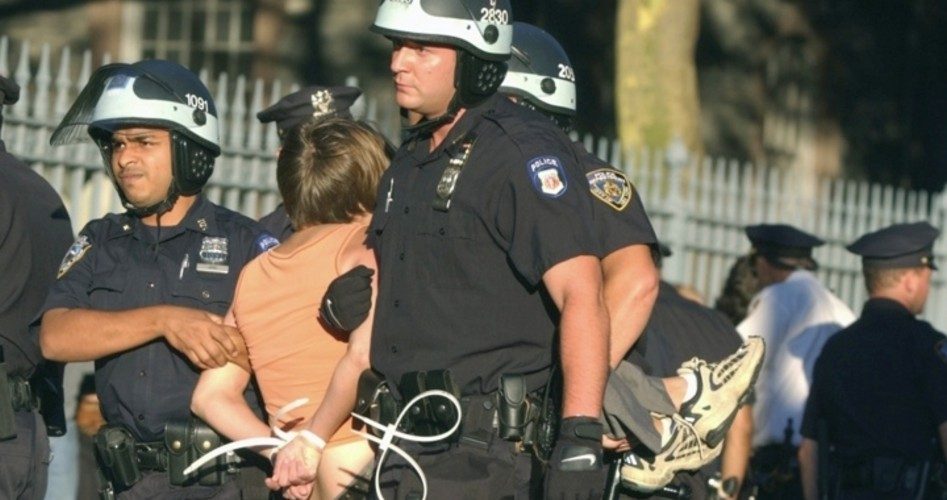
“The Fourth Amendment does not recognize guilt by association,” U.S. District Court Judge Richard Sullivan wrote in ruling that the New York Police Department illegally arrested a large number of demonstrators during the 2004 Republican National Convention in New York’s Madison Square Garden. The ruling from the U.S. District Court for the Southern District of New York held that police lacked probable cause for many of the arrests, because they had no knowledge or reason to believe that the individuals arrested had broken the law.
“An individual’s participation in a lawbreaking group may, in appropriate circumstances, be strong circumstantial evidence of that individual’s own illegal conduct,” Sullivan wrote in his 32-page opinion. “But, no matter the circumstances an arresting officer must believe that every individual arrested personally violated the law. Nothing short of such a finding can justify arrest. The Fourth Amendment does not recognize guilt by association.”
The judge’s ruling, dated Sunday, was on the claims of one group of plaintiffs arrested on Fulton Street on August 31, 2004. They are among the hundreds who filed false-arrest claims following their arrests during the convention. The demonstrations spread to other parts of the city and led to confrontations with the police. The ruling opens the city to the possibility of having to pay damages for the illegal arrests, the New York Times reported.
But the judge rejected claims that police had violated First Amendment rights by fingerprinting the arrestees and taking them to court, rather than issuing a summons for a court appearance. Sullivan ruled that the no-summons policy was a legitimate response to “a threat derived from intelligence sources — namely, that demonstrators aimed to ‘shut down the City of New York and the R.N.C.’ through ‘continuous unlawful behavior,’ ” and that they “would be undeterred by the issuance of summonses.” The judge added that the policy “was in place only for the brief duration the threat existed.”
Thus, both sides claimed victory in the court’s decision. The ruling “validates two city policies the plaintiffs have spent almost five years exclusively litigating — to fingerprint arrestees and not to issue summonses,” said Peter Farrell, an attorney in the city’s Law Department. “The court upheld these policies under the most exacting judicial scrutiny possible, finding them constitutional and warranted in light of the threats the city faced during the R.N.C. We are reviewing the remainder of the decision and considering our legal options in that regard,” he added.
New York Civil Liberties Union lawyer Christopher Dunn, representing some of the plaintiffs, hailed the decision as one that “emphatically rejected the city’s claim that it could make mass arrests of protesters.”
“With this ruling,” Dunn added, “the time has come for the city to put this controversy behind it, to settle the rest of the convention cases, and to make sure that mass arrests never happen again here.”
Bob Curley, a lawyer from Philadelphia, was arrested near Fulton Street with his son, then 16, and held for 16 hours. He expressed his pleasure with the judicial rebuke for the mass arrests, a policy he described as an effort to “discourage dissent.” “I was pretty shocked when it happened,” he told the Times in recalling the arrest. “I said to my son this isn’t the America I grew up in.”
Photo: A handcuffed person is carried by New York police to a waiting vehicle after being arrested during a demonstration across from the World Trade Center site in Manhattan on Aug. 31, 2004: AP Images



